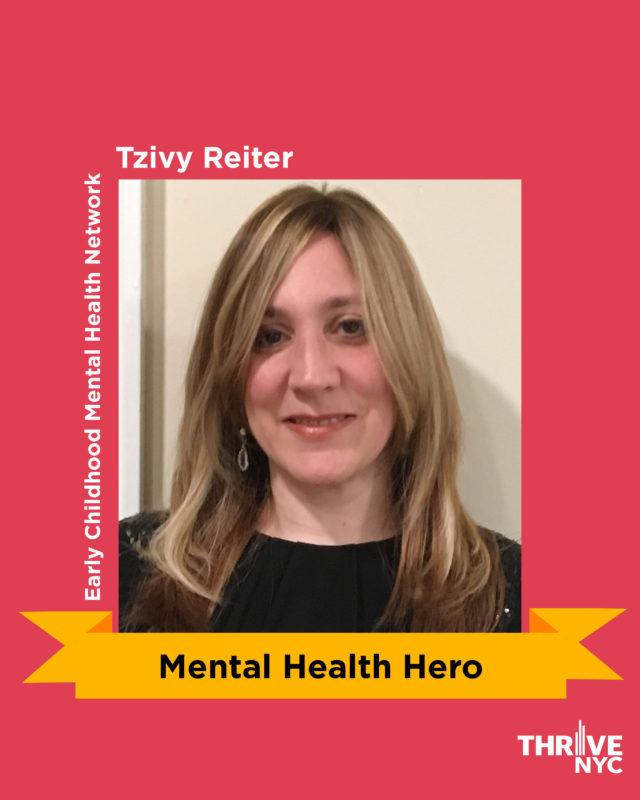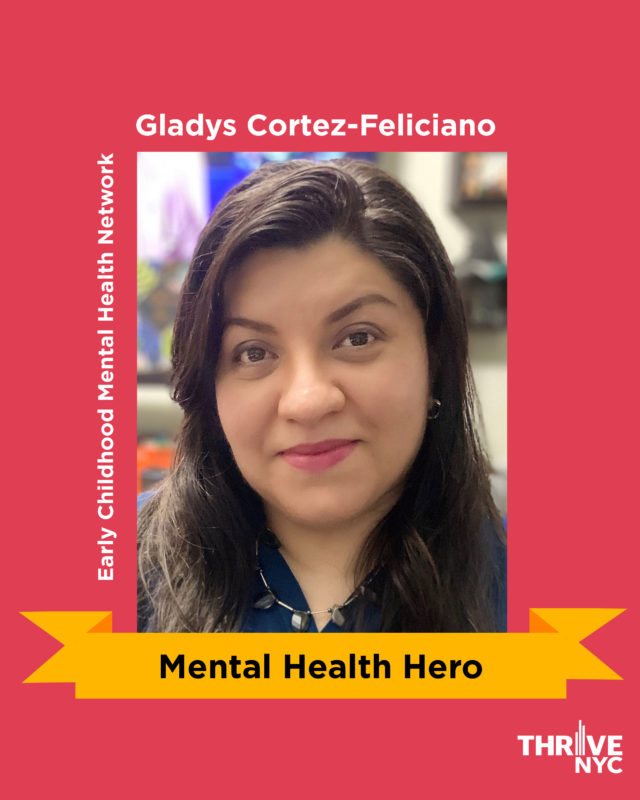Early Childhood Mental Health Network: Making video therapy work for moms and young children
 When the COVID-19 pandemic first emerged in New York City and schools were forced to close their doors, Tzivy Reiter and Gladys Cortez-Feliciano understood that families with young children would need more support than ever. As clinicians at the OHEL Children’s Home and Family Services, part of the City’s Early Childhood Mental Health Network, they helped initiate the transition to tele-mental health at one of the network’s seven sites, making sure families felt comfortable joining video sessions and phone calls with clinicians.
When the COVID-19 pandemic first emerged in New York City and schools were forced to close their doors, Tzivy Reiter and Gladys Cortez-Feliciano understood that families with young children would need more support than ever. As clinicians at the OHEL Children’s Home and Family Services, part of the City’s Early Childhood Mental Health Network, they helped initiate the transition to tele-mental health at one of the network’s seven sites, making sure families felt comfortable joining video sessions and phone calls with clinicians.
Typically, OHEL serves mothers with infants and young children at their offices, but Ms. Reiter, who is Director of the Center, knew that without access to daycare centers and schools, mothers would be seeing them from their homes often surrounded by other children. Rather than ignore the distractions mothers now faced, she invited the whole family to participate in remote sessions. She developed a program—called the Pre-School Smile Club—that included all the children in a household up to six years old. The children sang, danced and were taught coping skills through movement and play. The model was so successful that they shared it with the rest of the Early Childhood Mental Health Network to invite the children from their agencies to participate. OHEL also shared best practices in engaging children and families, in a set of tele-mental health guidelines.
 Ms. Cortez- Feliciano, a mental health consultant and clinician at OHEL, led the creation of several workshops for parents in English and Spanish. The workshops, conducted live on Zoom and recorded to share with the other families, helped parents cope with the new challenges they were facing, like teaching from home or self-care. This led Ms. Cortez-Feliciano to provide counseling for families to meet their individual needs.
Ms. Cortez- Feliciano, a mental health consultant and clinician at OHEL, led the creation of several workshops for parents in English and Spanish. The workshops, conducted live on Zoom and recorded to share with the other families, helped parents cope with the new challenges they were facing, like teaching from home or self-care. This led Ms. Cortez-Feliciano to provide counseling for families to meet their individual needs.
Together, Ms. Reiter and Ms. Cortez-Feliciano make a dream team at OHEL. “Tzivy’s innovation is pretty remarkable,” said Fatima Kadik, Project Director for Early Childhood Mental Health Services. “And Gladys is willing to do so much—she’s an advocate for everyone.”
From Ms. Reiter:
“This work is very intense and difficult, but also very powerful. We see how the survivors find the strength within themselves to confront the deepest pain and move forward. It is humbling. It gives perspective on what truly matters, and inspires us to continue our work.”
From Ms. Cortez-Feliciano:
“It is important that the children and families I work with feel connected culturally and feel understood in their own language. I believe my work helps create a voice and empowers families as they grow through our working relationship. This could mean listening, creating awareness and developing insight, or getting their basic needs met, as well as connecting parents and children through art and play. This is how I strengthen the family’s toolbox to cope in the current crisis.”
AT A GLANCE: Early Childhood Mental Health Network
• 7 early childhood therapeutic centers, open to all New York City residents, offer specialized mental health treatment for children from birth to age five – and their families
• Families served have access to family peer advocates and ongoing support
• Therapy is provided by licensed mental health professionals who receive specialized training in evidence-based practices and early childhood development
• Mental health professionals consult with Department of Education-partnered early childhood programs to strengthen capacity of teachers and caregivers to meet children’s mental health needs
FAST FACTS
• Over 6,400 have received a mental health consultation through this program
• Trained 4,722 early childhood professionals in mental health best practices
• Over 3,400 parents and families received peer support services
• In the most recent reporting period, 82% of families referred to an Early Childhood Mental Health Network Clinic by an early childhood program made their first appointment
.